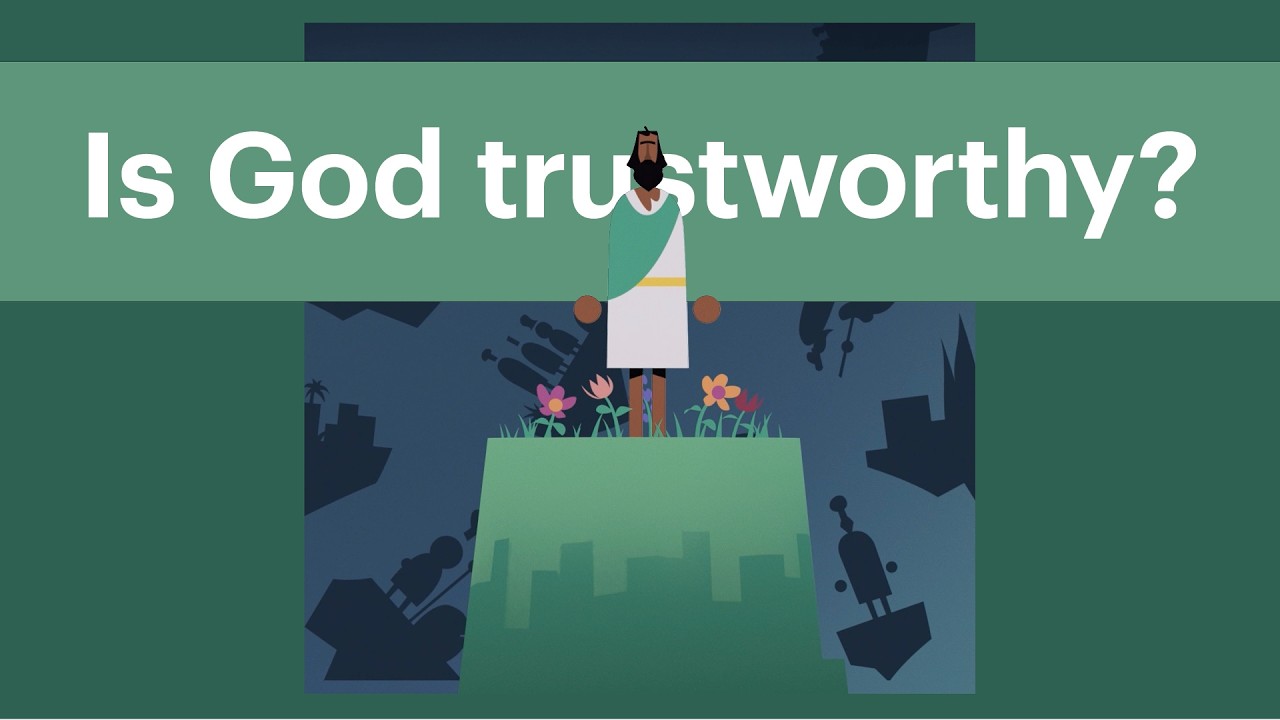Transgression
Summary
TLDRThis video explores the biblical concept of 'transgression,' or 'pesha,' which refers to violating trust in relationships. It delves into the meaning of terms like 'sin,' 'iniquity,' and 'transgression' and how these ideas are often misunderstood or dismissed today. Through examples from the Bible, such as the betrayal between nations or individuals, the video explains how transgression is a key theme in the biblical narrative. The story culminates in the New Testament, where Jesus embodies faithfulness, offering a new way for humanity to live with integrity and trustworthiness.
Takeaways
- 📜 The Bible discusses the human condition using terms like 'sin', 'iniquity', and 'transgression', which may sound archaic but offer profound insights into human nature.
- 🌐 'Iniquity' signifies behavior that is not straight or fair, indicating a deviation from moral uprightness.
- 💔 'Sin' is used to describe moral failure, highlighting the gap between human actions and divine standards.
- 🚫 'Transgression', from Hebrew 'pesha' and Greek 'paraptoma', refers to the violation of trust, whether in personal relationships or societal agreements.
- 🤝 'Pesha' in Hebrew specifically denotes the act of breaking trust within a relationship, emphasizing the relational aspect of moral wrongdoing.
- 🏛️ The concept of 'pesha' is exemplified in the Bible through historical events such as the breaking of treaties and the betrayal within close relationships.
- 📖 Prophets in the Bible, like Micah and Amos, used the term 'pesha' to confront the Israelites for their moral and social transgressions against God and each other.
- 🌍 Amos extended the idea of 'pesha' to include violations of universal human trust, such as idolatry, exploitation of the poor, and acts of violence for territorial gain.
- 🤔 The Apostle Paul in the New Testament develops the idea of 'paraptoma', associating humanity's broken trust with God and with each other, leading to a cycle of betrayal and death.
- 🕊️ Paul presents Jesus as the embodiment of God's response to humanity's transgression, offering a path of redemption and a new way to be human characterized by faithfulness and integrity.
- 🌟 The story of the Bible is one of God's faithfulness in the face of humanity's 'pesha' and 'paraptoma', with Jesus as the model for a new creation that values trustworthiness and righteousness.
Q & A
What does the Bible say about the human condition?
-The Bible offers a profound diagnosis of human nature, using terms like 'sin', 'iniquity', and 'transgression' to describe moral failures and behaviors that violate trust.
What is the biblical meaning of 'transgression'?
-In the Bible, 'transgression' refers to the violation of trust, often translated from the Hebrew 'pesha' or the Greek 'paraptoma', and can encompass a wide range of behaviors that break relationships.
How is 'pesha' used in the context of nations in the Bible?
-'Pesha' is used to describe the breaking of a treaty or agreement between nations, as seen in the book of 2 Kings where Moab is said to have 'peshed' with Israel, meaning they rebelled against them.
What does the term 'pesha' imply in the context of theft?
-In the case of theft, if the thief is a neighbor, it is considered 'pesha' because it involves a betrayal of trust from someone who should be trustworthy.
How is 'transgression' related to the story of Jacob and Laban?
-In the story, Laban accuses Jacob of stealing idols, and Jacob responds by asking how he has 'peshed' or violated Laban's trust, highlighting the theme of trust violation.
What role do prophets play in addressing 'pesha'?
-Prophets in the Bible, such as Micah and Amos, confront the people about their 'pesha', or moral failures and betrayals, including idolatry, mistreatment of the poor, and other acts of injustice.
How does the Apostle Paul use the concept of 'paraptoma'?
-Paul uses 'paraptoma' to describe humanity's violation of trust with God and with each other, leading to a cycle of broken relationships and death, but also God's gracious response through Jesus the Messiah.
What is the significance of the term 'paraptoma of Adam' in Paul's teachings?
-'Paraptoma of Adam' refers to humanity's initial violation of trust with God, which Paul sees as the root of the complex web of broken relationships and suffering in the world.
How does the Bible's narrative address humanity's broken trust?
-The Bible tells a story where God responds to humanity's 'pesha' and 'paraptoma' by being trustworthy on our behalf, ultimately through the life and teachings of Jesus, who embodies faithfulness, trustworthiness, and integrity.
What is the goal of the biblical message regarding transgression and trust?
-The goal is to show that God, through Jesus, takes responsibility for our betrayals and opens up a new way to be human, characterized by faithfulness and integrity, guiding the world towards a new creation.
How can viewers learn more about the Bible's teachings on these topics?
-Viewers can explore more by watching the 'bad word' series and other videos on The Bible Project's YouTube channel or visiting their website, thebibleproject.com.
Outlines

Cette section est réservée aux utilisateurs payants. Améliorez votre compte pour accéder à cette section.
Améliorer maintenantMindmap

Cette section est réservée aux utilisateurs payants. Améliorez votre compte pour accéder à cette section.
Améliorer maintenantKeywords

Cette section est réservée aux utilisateurs payants. Améliorez votre compte pour accéder à cette section.
Améliorer maintenantHighlights

Cette section est réservée aux utilisateurs payants. Améliorez votre compte pour accéder à cette section.
Améliorer maintenantTranscripts

Cette section est réservée aux utilisateurs payants. Améliorez votre compte pour accéder à cette section.
Améliorer maintenantVoir Plus de Vidéos Connexes

The Reason You Can Trust God (Even When It Seems Risky)

Shalom - Peace

Luciano Subirá - “DÁ NADA NÃO”: A VOZ DA TRANSGRESSÃO - PARTE 1 | SUB12

Struktur Sosial | Sosiologi Kelas 11 - KHATULISTIWA MENGAJAR

Trust relationships with Active Directory Domain/trees/forests

How Soft Power Shapes Global Diplomacy
5.0 / 5 (0 votes)
